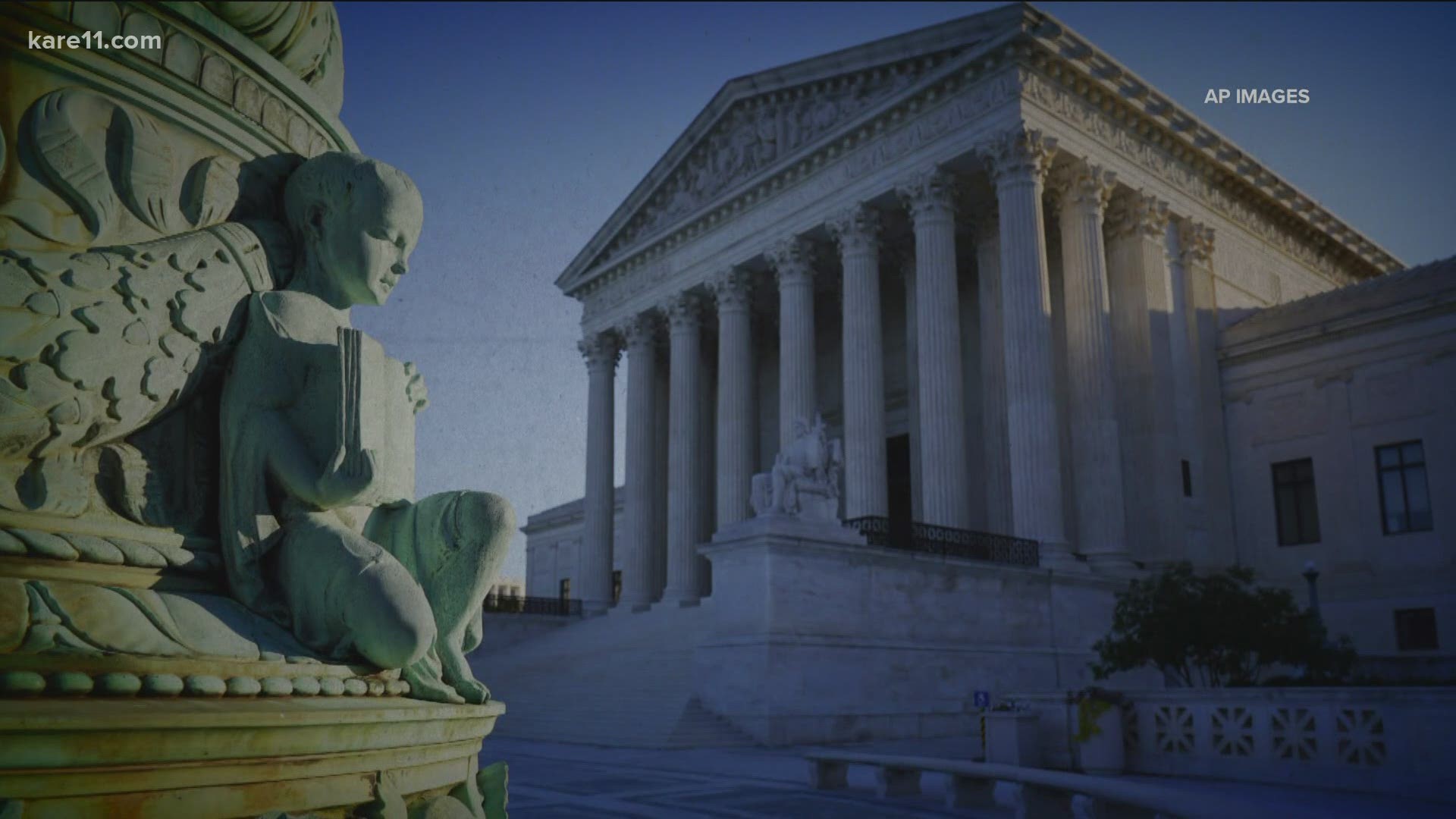After five years, the U.S. Supreme Court officially put an end to the legal appeal of Kim Davis, the former Kentucky county clerk who was arrested and jailed for refusing to issue marriage licenses to same-sex couples due to her religious beliefs.
But in voting not to take her appeal, the two U.S. Supreme Court Justices made it clear that they want to challenge same-sex marriage.
"This was a strategic move," said Timothy R. Johnson, Morse-Alumni Distinguished Professor of Political Science and Law at the University of Minnesota. "Justices Clarence Thomas and Samuel Alito are signaling for someone to bring a case to ask for the overturning of the same-sex marriage decision from five years ago."
Johnson says their dissent, written by Justice Thomas, lashed out at the 2015 ruling in Obergefell v. Hodges, which ushered in same-sex marriage. Thomas wrote that Davis is "one of the first victims" of the court's "cavalier treatment of religion" stemming from Obergefell, and warned "she will not be the last."
Justice Thomas added: "The court has created a problem that only it can fix," and "until then, Obergefell will continue to have 'ruinous consequences for religious liberty.'"
Supporters of marriage equality found the dissent alarming, especially with the Republican-controlled Senate moving to push the court in a more conservative direction before the election.
Even so, Johnson says that doesn't automatically mean the court is poised to overturn marriage equality.
"I would suggest that there is some cause for concern, especially with the imminent confirmation of judge Amy Coney Barrett, who, by all accounts has very strong religious beliefs," he said. "That said, the court actually handled two LGBTQ rights cases at the end of its term this past June. Both of those cases said that if you fire someone because he or she is gay, or because he or she is transgender that that is a violation of Title IV of the civil rights act of 1964."
Johnson says, most importantly, even though Ruth Bader Ginsberg was on the court at that time, she was not the pivotal vote.
"There were two conservative votes in those cases," he said. "Not only Chief Justice Roberts, who in fact, was a dissenter in the Obergefell case in 2015, but Justice Neil Gorsuch, Trump's first nominee, actually wrote the opinions in those cases. So there is, in fact, currently a five person majority on the court, including the Chief Justice, who will take a second look before saying we're going to do some harm to same-sex couples or rights that they may possess."
Especially, he says, because outside of the court, same-sex marriage is widely popular. According to a Gallop poll this summer, two in three Americans support same-sex marriage, matching the previous high in 2018.
"It would be absolutely devastating to the legacy of Chief Justice John Roberts and his court era, and therefore I think that it is probably unlikely it would be overturned," Johnson said. "It is so engrained in our culture now that same-sex couples are just like heterosexual couples or different sex couples, that overturning that decision and stripping away the rights of hundreds of thousands, if not millions, of Americans is actually really difficult for the court to do, whether or not you believe it should do it is a different story. It's just very difficult for the court to go that far afield from where the public stands on an issue."

